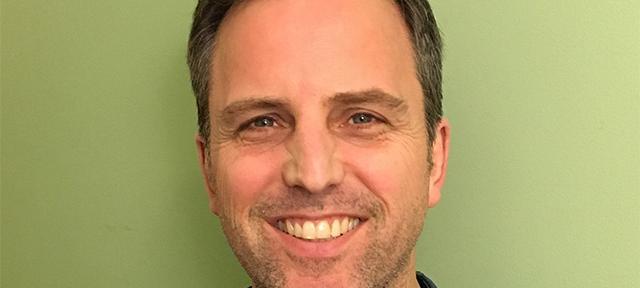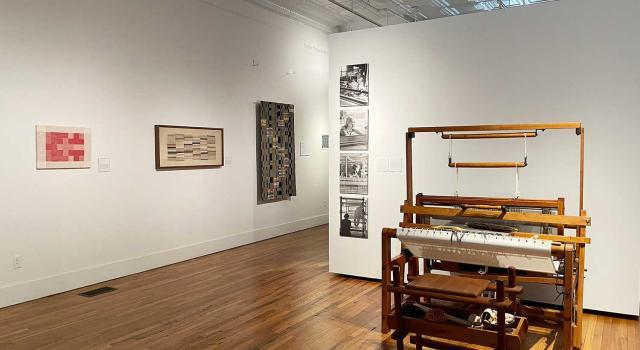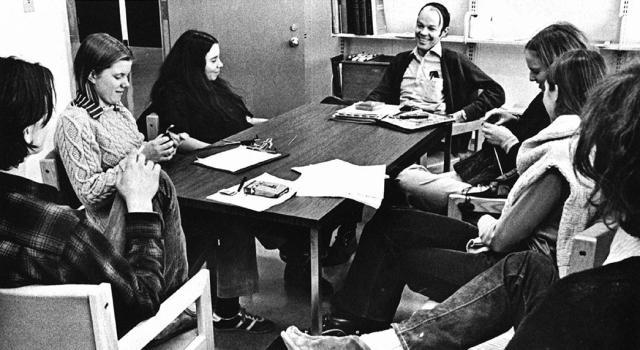Theatre Professor Will MacAdams on Embodying New Possibilities

A student’s experience at Hampshire College is unlike anywhere else — and unlike anyone else’s. We sat down (virtually) with Visiting Assistant Professor of Theatre Will MacAdams to learn a little about what he finds so compelling about the Hampshire experience.
What are some of the classes you teach? Do you have a favorite — why?
I teach theatre for social change, directing, acting, and devised theatre, sometimes in collaboration with colleagues. I have many favorites. One that comes to mind is "Theatre for Community, Revolution, and Radical Joy," which explores how theatre artists have responded to thresholds of history and revolution and worked in partnership with community organizers to imagine and embody new possibilities for how we live, make community, and tell stories.
What do you like best about teaching Hampshire students?
They refuse to settle for simple answers.
What excites you about being a faculty member here?
My colleagues — both faculty and staff — are enormously inspiring! And Hampshire students have been involved in almost every social movement of the past 50 years, which also inspires me greatly. In short, Hampshire is always changing, and, therefore, I am always growing.
Hampshire is deeply student- and collaboration-focused. What are some of the collaborative projects you’ve worked on with students?
I worked with students, faculty, and staff of the theatre program on a year-long playmaking process in which we collaboratively created and produced a theatre production called Money Play. The play explored students' stories about their class backgrounds and the many identities that intersect with class. There is a wonderful four-minute video about our process, viewable by the public.
Currently, I am working with a multi-racial, cross-generational team on Gasping, a play and community workshop that explores how white supremacy shapes parenting in progressive middle-class communities. The play fosters dialogue and raises funds for the BIPOC-led movement for racial justice.
Have you held any other professions before or during your time at Hampshire? And if so, have they informed your work at Hampshire?
I am a playwright and a theatre director, so I have written and directed many plays both before and while teaching at Hampshire — in partnership with communities in cities and farming towns in both the U.S. and across the world. As my craft grows, I bring ideas to the classroom to open up space for young artists to shape their work, voice and embody the stories they want to tell, and expand our world. My teaching also informs my theatre practice, partly because teaching asks me to articulate why I do what I do, which makes my artistic work more precise, clear, and impactful.
What do you hope future Hampshire students know, and/or come to Hampshire prepared to do/be/see/experience?
I hope that people come to Hampshire ready to engage deeply with vital questions facing our world and to engage them with their intellects and their hearts. I also hope that they come ready to listen: to themselves, to each other, and the world.



